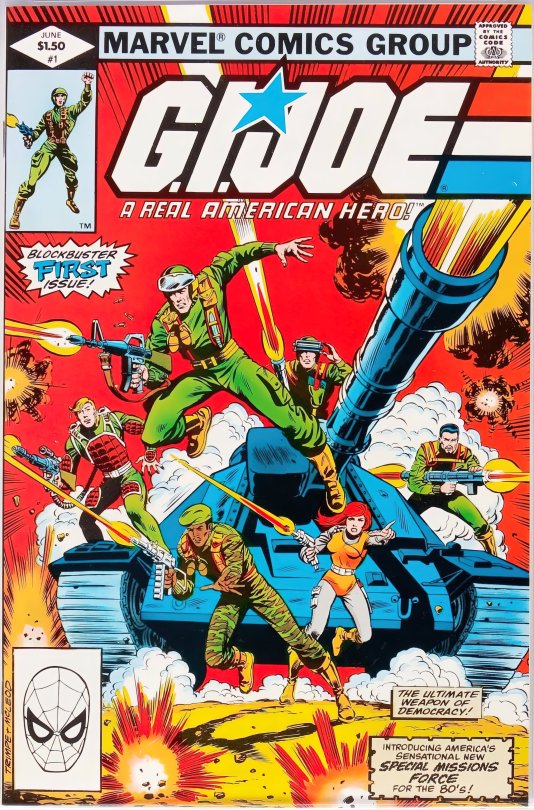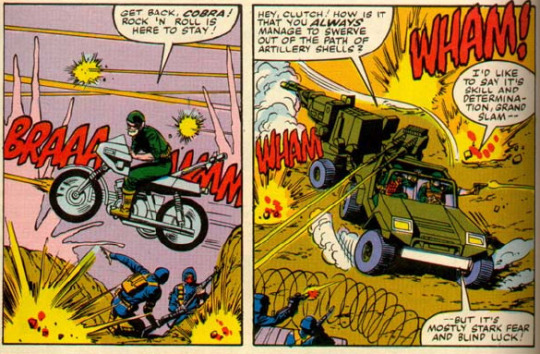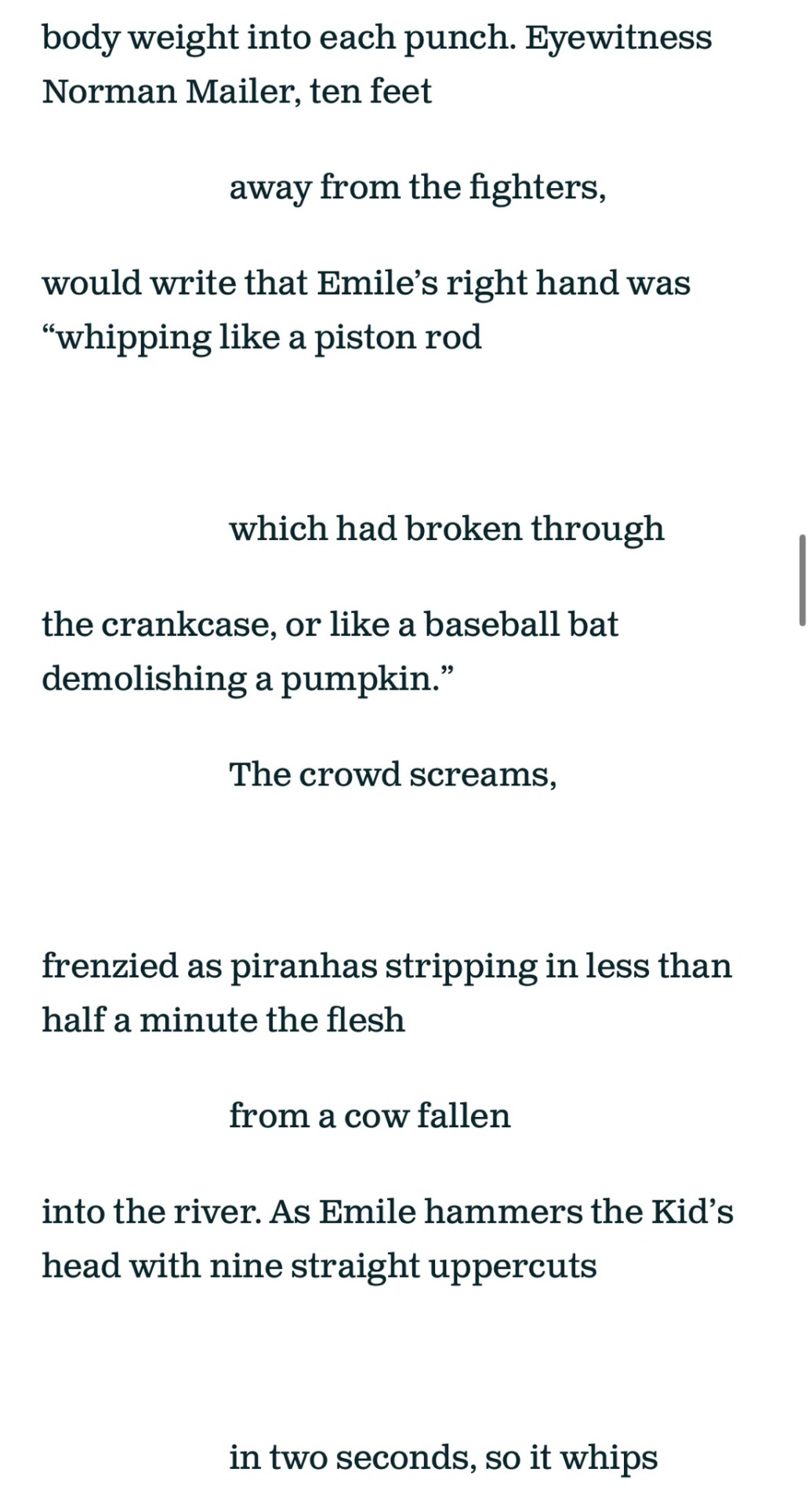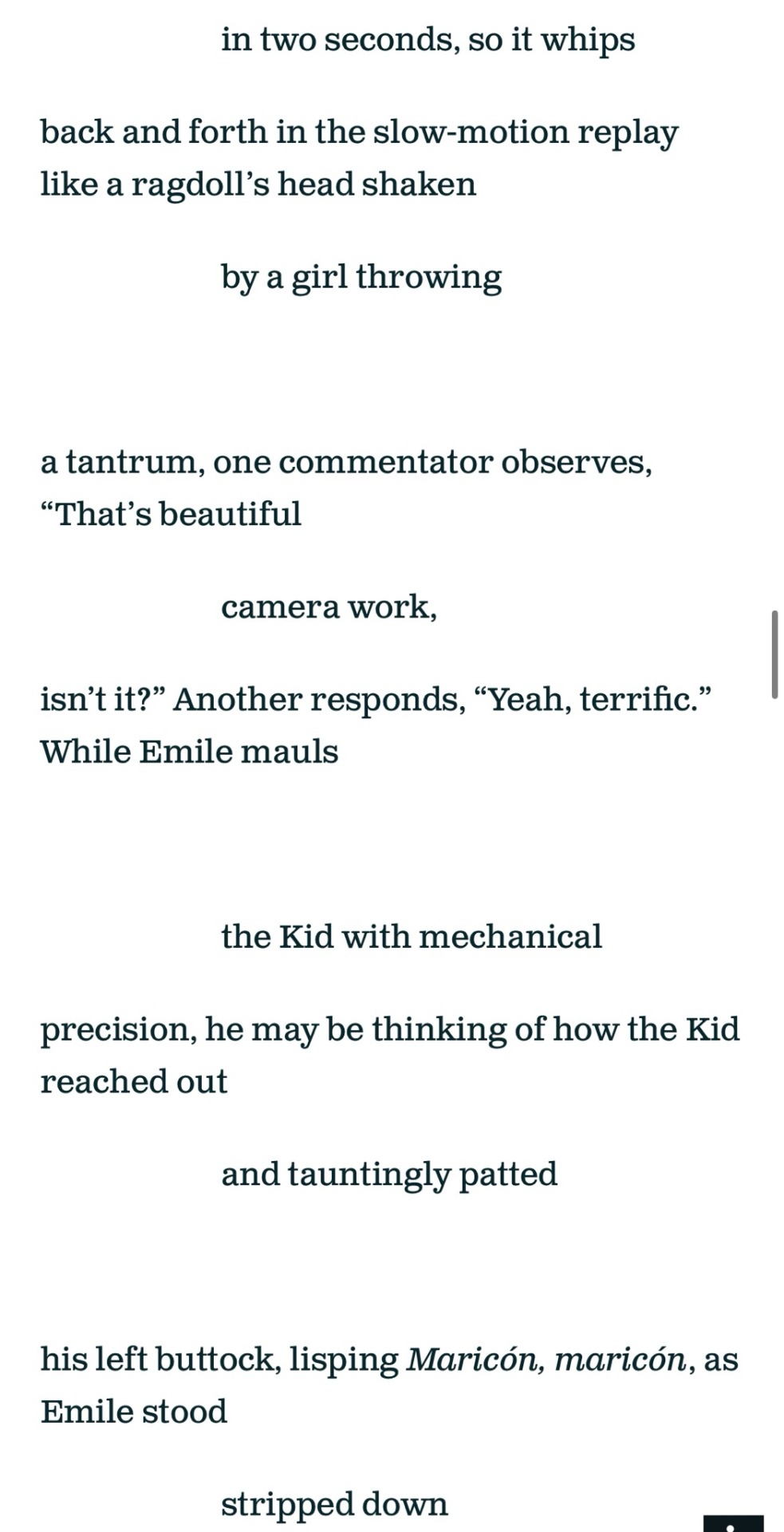the owl says whoI started a Cara account for my Art:https://cara.app/onewordlong
Don't wanna be here? Send us removal request.
Text
How do we stop these neonazis?
HOW
"Every record has been destroyed or falsified"
The National Parks website for stonewall inn was updated last month to erase trans people.

Say trans. She was trans. Do not let them erase our history. We owe our movement to trans people

Hey you forgot the "T" but I will not.

but the ""T" updated February 13 2025

She was trans. Say it. She was trans. What they have not erased they have changed.

We can protest

There is no movement without trans people. There is no movement without trans people. Remember. Get any book you can. Educate the baby gays. There is no movement without trans people, so why is the government trying to take our heroes from us?
118 notes
·
View notes
Text
Will I ever be able to square the child whole loved this with the woke, cynical world weary adult I am now?
No, but I'll let contradictions lie in this.


Yo Joe! G.I. Joe #1 was published by Marvel on this date in 1982, and featured the first comic book appearance of Snake-Eyes, Scarlett and the rest of G.I. Joe team, as well as Cobra Commander and the Baroness.
G.I. Joe #1 was written by Larry Hama and featured artwork by Herb Trimpe, Bob McLeod and Glynis Wein, with lettering by Jim Novak. It also included a back-up story by Hama and artists Don Perlin and Jack Abel.
41 notes
·
View notes
Text










on trans day of remembrance the community came together to have an event, including this being read by a local poet. and I know all you people will eat it up as much as I did
1K notes
·
View notes
Text

March, 1918 "La Vie Parisienne" magazine cover. From The Art Deco Alliance, FB.
125 notes
·
View notes
Text

"Hospital Apprentices second class Ruth C. Isaacs, Katherine Horton and Inez Patterson (left to right) are the first Negro WAVES to enter the Hospital Corps School at National Naval Medical Center, Bethesda, MD."
Record Group 80: General Records of the Department of the NavySeries: General Photographic Files
This black and white photograph shows three African American women in Navy uniforms standing in front of a mural showing Navy boats and a blimp.
110 notes
·
View notes
Text
Episode 616 - The Envelope Please… (Rex Saunders, Johnny Dollar, Bold Venture, & Sherlock Holmes)
It’s a wonderful night for Oscar! The Academy Awards will be handed out this evening, so in celebration of Hollywood’s biggest night, here are four old time radio mysteries - each starring an actor who took home a golden statuette. Edmond O'Brien (Best Supporting Actor for The Barefoot Contessa) is Johnny Dollar in “The George Farmer Matter” (originally aired on CBS on June 9, 1951). Rex Harrison (Best Actor for My Fair Lady) stars as a debonair detective in “A Trip to the Death House” from The Private Files of Rex Saunders (originally aired on NBC on June 13, 1951). Humphrey Bogart (Best Actor for The African Queen) and Lauren Bacall (nominated for Best Supporting Actress for The Mirror Has Two Faces) star in “Senor Rufio’s Legacy of Death,” a syndicated episode of Bold Venture. Finally John Gielgud (Best Supporting Actor for Arthur) and Ralph Richardson (a two-time Best Supporting Actor nominee) are Sherlock Holmes and Dr. Watson in “The Golden Pince-Nez” (originally aired on NBC on April 3, 1955).
Check out this episode!
3 notes
·
View notes
Text
elon musk did a nazi salute twice at the inauguration, and republicans are defending him.
trump revoked executive order 11246, which prohibited discrimination.
trump put all dei employees on leave to be fired.
trump blamed the dc plane crash on dei.
trump banned all lgbtq+ flags from being hung in government buildings.
trump ordered the pentagon to cancel celebration of mlk jr. day, black history month, women's history month, holocaust remembrance day, asian american pacific islander heritage month, lgbtq+ pride month, juneteenth, women's equality day, national hispanic heritage month, national disability employment awarenessmonth, and national american indian heritage month.
trump proposed removing all palestinians from gaza, turning the area into a vacation resort called “riviera of the middle east”.
trump posted an ai generated video showing what he hopes to turn palestine into, with a large golden statue of himself in the middle of it.
trump rolled back biden’s executive order to lower prescription drug costs for people using medicare and medicaid.
trump rescinded the $35 cap on insulin, and prices are expected to rise to $1500 a month.
trump ordered the national institutes of health to cancel their review panels on cancer research.
trump ended the guidelines to prevent ai misuse. the guidelines prevent many things, but notably it prevents production of ai child pornography.
when sean hannity asked trump about the economy, he said “i don’t care”, after campaigning with the economy as his main talking point.
trump has withdrawn the us from the world health organization.
trump is ordering health agencies to stop reporting on bird flu and halt publications of scientific reports.
trump has pardoned over 1500 people who stormed the capitol on january 6th.
trump changed denali back to mount mckinley.
trump signed an executive order to rename the gulf of mexico to gulf of america.
trump shut down cbp one, an app which granted legal entry to 1 million+ immigrants.
trump has discussed introducing a “gold card”, which would allow the wealthiest people to buy us citizenship for $5 million usd.
trump is allowing ice raids at churches and elementary schools.
trump announced plans to declare a national emergency at the us-mexico border.
trump signed an executive order to expand the use of the death penalty.
trump disbanded the school safety board that works to prevent school shootings. it was comprised of survivors, educators, and gun violence prevention advocates and formed after the school shooting in parkland.
trump has threatened to invade panama to claim the panama canal.
trump withdrew from the paris climate act.
trump revoked all protections for transgender troops in the us military.
trump rescinded executive orders made by biden that benefited and protected women, lgbtq+ people, black americans, hispanic americans, asian americans, native hawaiians, and pacific islanders.
trump is attempting to make it legal to refuse to hire or fire pregnant women.
multiple state legislators are drafting bills to allow the punishment for abortion to be the death penalty.
trump pardoned 23 individuals convicted under the freedom of access to clinic entrances (FACE) act for their anti-abortion activism, including oftentimes violent protests at abortion clinics.
trump signed an executive order allowing deportation of foreign students who they believe express support for hamas or hezbollah.
trump announced that the us government will from here on out only recognize male and female as sexes. intersex is not legally recognized anymore.
trump has told all schools and universities that they have two weeks to end all diversity initiatives, or he will cut federal funding. (as of feb 19, 2025)
trump fired the staff of the federal aviation association after a deadly plane crash in dc.
trump has fired the heads of the tsa and coast guard, and gutted a key aviation safety advisory committee.
the official white house twitter account posted an “illegal alien deportation” asmr video where they did closeups of chains and the sound of ankle chains hitting the metal stairs of the airplanes deportees were being loaded onto.
on truth social, trump posted, “LONG LIVE THE KING!”.
at CPAC, a republican group called the “third term project” held a rally to support changing the constitution so trump can run for a third term. on their posters, they’re photoshopping his face onto julius caesar’s, seemingly forgetting what happened to julius caesar.
the trump administration paused health communications to prevent the fda from announcing food recalls.
republicans on tiktok are recreating elon’s salute to prove that it “wasn’t a nazi salute”, and they’re either doing it completely wrong because they know if they replicate it then it will actually be a salute, or they’re doing the proper salute and posting it online.
google and apple maps now display the gulf of mexico as “gulf of america”.
rfk jr. wants to ban SSRIs and put everyone on them into labor camps.
andy ogles drafted a constitutional amendment to allow trump to be president for a third term.
the us senate confirmed russell vought, one of the main authors of project 2025, will lead the white house budget office.
nancy mace repeatedly used the t-slur during a congressional meeting, three times were out of spite.
andy biggs introduced a bill to abolish osha and completely eliminate federal workplace safety protections.
georgia republican congressman mike collins called for the deportation of new jersey born mariann budde, the bishop who urged trump to “have mercy” on the lgbtq+ community and immigrants during a service at the national cathedral.
florida republican anna paulina luna has introduced a bill to add trump to mount rushmore.
new york republican claudia tenney introduced a bill to make trump’s birthday a federal holiday.
west virginia republican delegate lisa white has introduced house bill 2712, which would remove rape and incest as exceptions for abortion, even for minors. you can call her at (304) 340- 3274 or email her at [email protected] and let her know your opinion on that.
there is a bill named the SAVE act which would require americans to provide their birth certificate, passport, or other citizenship documents every time they vote, and would require the last name on their driver’s license to match that of their birth certificate. this would prevent married women who have changed their last name from voting.
bill h.r.1161, which is available publicly on congress.gov, would authorize trump to enter into negotiations to acquire greenland and to rename it to "red, white, and blueland".
six states (arizona, idaho, iowa, kansas, mississippi, and north dakota) are planning on challenging obergefell v. hodges, which would end same-sex marriage nationwide. about a dozen more states have representatives are also considering filing similar resolutions.
a bill to ban the mRNA vaccine has passed out of the house committee.
amazon revoked protections for lgbtq+ and black employees.
the cdc has removed their hiv prevention page.
the united states state department has officially changed its “travelers with special conditions” page which previously said “lgbtqi+ travelers” to “lgb travelers”, completely getting rid of the tqi+.
every single republican told us we were overreacting. trump swore he had nothing to do with project 2025 yet continues implementing details outlined in it. not a single person has the right to tell us we’re being dramatic anymore.
hope “cheaper eggs and gas” was worth it.
EDIT: i removed the “trump refused to swear on the bible” point because it was being taken as me being an offended christian. i’m not christian, im agnostic. the reason i included it in the first place is because he’s the first president in history to ever refuse to swear on ANYTHING. meanwhile his “conservative christian” followers had no issue with this, and decided to continue to scramble for excuses instead of admitting he may not be as religious as he claims he is. i figured taking that point out entirely is probably better than filling this with an explanation in the middle of the other important issues.
63K notes
·
View notes
Text
3K notes
·
View notes
Text
We HAVE to make them fear for their lives.
It's the best weapon we have.

(x)
41K notes
·
View notes
Text
It’s uncanny how similar Trump is acting like Hitler. People are now doing the Nazi salute. They’re drawing the symbol. The KKK was seen in Kentucky asking people to join them. ICE has been ripping families apart. Companies have pulled back Diversity Initiatives. We’re no longer part of WHO and there won’t be any communication from the CDC at least until February 1st. We’re being censored and the news can’t be trusted. Thousands of Americans didn’t know there were protests against Trump yesterday outside the U.S. Quotes from The Handmaid’s Tale and Anne Frank have been compared to what’s going on right now.
According to The Lemkin Institute for Genocide Studies and Prevention the U.S. has officially been given a red flag alert for Genocide.
I’m exhausted but I will never stop being angry.
84K notes
·
View notes
Video
Descendant of Nikola Tesla.
Every time I go downstairs to the laundry room, this pigeon tries to seduce me.
#pigeons will try to fuck anything i swear#nikola tesla#Courtship rituals#Pigeons#Aim high and never lower your standards
534K notes
·
View notes
Text
I'm a collage artist and right when the AI trend was breaking wide last year a musician acquaintance posted on socials looking to hire someone to help make them AI album art (baffled??) and when I reached out to suggest hey, maybe you could hire me to do something analog, I was turned down - specifically because they wanted to be part of the trend.
FFS.
i keep finding good music with ai generated album covers and it actually like hurts me. you're a musician. you're an artist. you spend i assume hours and hours poring over a single track, come out with something you're proud of and then dont have the braincells to stop yourself from making an ai album cover. you won't hire someone or make some photobashed shit in canva out of copyright free images or something. have you no sense of dignity. no sense of comradery as a creative type. you could make a crayon drawing and take a picture in shit lighting with your phone and it would be infinitely more charming than the ai art. youre ugly youre disgusting im gonna kill you give me 500 dollars
2K notes
·
View notes
Text
my little cousin confidently declared that mother nature had a counterpart named daddy electric and i feel like this concept needs to be explored
299K notes
·
View notes









